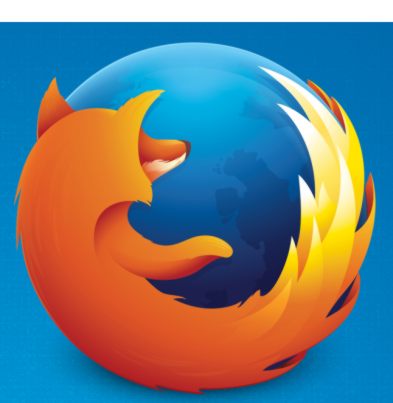| Firefox Marks 10th Anniversary |
| Written by Ian Elliot | |||
| Monday, 10 November 2014 | |||
|
On November 9, 2004 Mozilla released Firefox 1.0. It is celebrating its first decade with the release of Firefox 33.1, billed as a browser for developers.
Work on the web browser that we now know as Firefox was initiated by Dave Hyatt and Blake Ross as part of the Mozilla Suite. It was given the name Phoenix and public testing commenced with release 0.1 in September 2002. This name was discontinued due to a trademark dispute and the next name, Firebird, was also shortlived as the Firebird database server already used it. By the time of its 1.0 release the browser had adopted the Firefox name, which of course refers to a red panda rather than to a fox, despite the bushy tail. Firefox met with initial success and was downloaded more than 100 million times in its first year. It was particularly popular with the developer community due to tools such as Firebug which supports editing CSS, HTML and JavaScript at the same time. It also made use of a novel architecture. An HTML-like markup language XUL was used for the UI and this blurred the distinction between the HTML document and the browser's UI - the chrome. This approach made Firefox extensible and customisable. Other applications also used XUL and there is a standalone XUL runner app that can be used for general development. However XUL never really caught on as much as Mozilla hoped - probably because of a huge lack of quality documentation. Having been designed to be customisable Firefox benefited form a large number of extensions. One of these was tabbed browsing. It wasn't new in Firefox but it was a welcome feature that put it apart from Internet Explorer. When Firefox came along Internet Explorer had over 90% share of the desktop browser market, now IE has less than 60%. However, from being the second biggest browser, with about a quarter of the web browser market, Firefox has recently been overtaken by Chrome in terms of popularity. The mobile version of Firefox is also in third place, behind Safari and Chrome. Even so, Mozilla counts over 450 million users around the world and for a browser that is 100% open source, and largely developed by a community of dedicated volunteers, it is worth supporting. Recognizing its developer community the 10th anniversary release promises a number of developer goodies. It is hoped that they in turn will enable Firefox to become more efficient and robust over the coming months so that it can continue to be a strong third pillar of the browser scene. However it has a number of very difficult challenges to overcome. Perhaps the biggest is its dependence on Google, its arch rival in the browser business. The majority of Mozilla's funds come from Google in return for it being the default search engine in Firefox. As Chrome gains users, Firefox needs to keep market share to make it worthwhile for Google to put so much money into a competitor. Then there is the problem of the missing technologies. Google has a search engine, translation system, maps and many extras that it can build into its browser. Mozilla, on the other hand, doesn't have any such systems, even though it has made small efforts to create alternatives to the Google-provided services. Perhaps the biggest challenge to Firefox is its stability. Many users criticize Firefox for its ability to use lots of memory and crash often. Thies is partly due to the fact that its design doesn't isolate tabs. A single tab crashing can bring down the entire browser. There are projects in hand to make Firefox multithreaded, and even to improve the Gecko rendering engine, but these are not small undertakings. Firefox is a very,very big and probably messy code base. Modernizing it, slimming it down and making it suitable for the next ten years is a task that will require Mozilla to focus and retain its funding levels.
More InformationMozilla Foundation releases the highly anticipated Mozilla Firefox 1.0 web browser Firefox Surpasses 100 Million Downloads! Related ArticlesMozilla To Release Browser For Programmers Firefox Losing Share As Desktop Browser Extending Firefox and Thunderbird
To be informed about new articles on I Programmer, install the I Programmer Toolbar, subscribe to the RSS feed, follow us on, Twitter, Facebook, Google+ or Linkedin, or sign up for our weekly newsletter.
Comments
or email your comment to: comments@i-programmer.info |
|||
| Last Updated ( Monday, 10 November 2014 ) |



